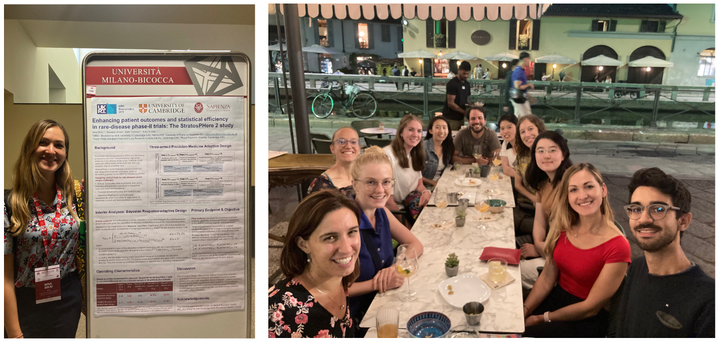Enhancing patient outcomes and statistical efficiency in rare-disease phase-II trials. The StratosPHere 2 study (Poster @ ISCB2023 - Joint conference with the IBS)

Abstract
Designing early- and late-phase clinical trials for rare conditions pose unique challenges, ranging from ethical and practical enrolment considerations to generating robust evidence from limited sample sizes. Pulmonary arterial hypertension (PAH), for example, is a life-limiting progressive disorder characterised by high blood pressure in the arteries of the lungs that affects 15 to 50 cases per million in the US and Europe. Although treatable, PAH has no available cure. In such a setting, conducting trials to primarily learn about treatment effectiveness (as in traditional fixed randomised designs) may result in an unacceptably low expected outcome for patients in presence of superior treatments. Further, meeting conventional power requirements, while controlling for type-I error, is infeasible in inherently small and heterogeneous populations. StratosPHere 2 is the first-ever precision-medicine trial of treatments targeting common genetic causes of the disease: BMPR2 mutations. Using this case study, this work outlines the potential of innovative designs for addressing the above challenges in small populations. The proposed design builds on a response-adaptive randomised framework and incorporates Bayesian principles for utilising the continuously accrued responses (transcriptomic biomarker expressions) to adapt the allocation probabilities. It involves three stages, each of which enrolling and allocating from 6 to 8 patients to one of the three study arms (two active and one control arm). The adaptive design is stratified by two BMPR2 mutation subgroups and performed independently in each stratum. In addition to varying the allocation probabilities from one stage to another, the design is allowed to drop one of the two active arms in case of early evidence of inferiority. Extensive simulations, using prior PAH patient data, are carried out to perform sample size evaluation with 20 patients per mutation stratum. Compared to a traditional fixed design, the flexibility of the proposed framework results in substantial gains in both statistical power and a higher chance for patients to receive the superior arm.